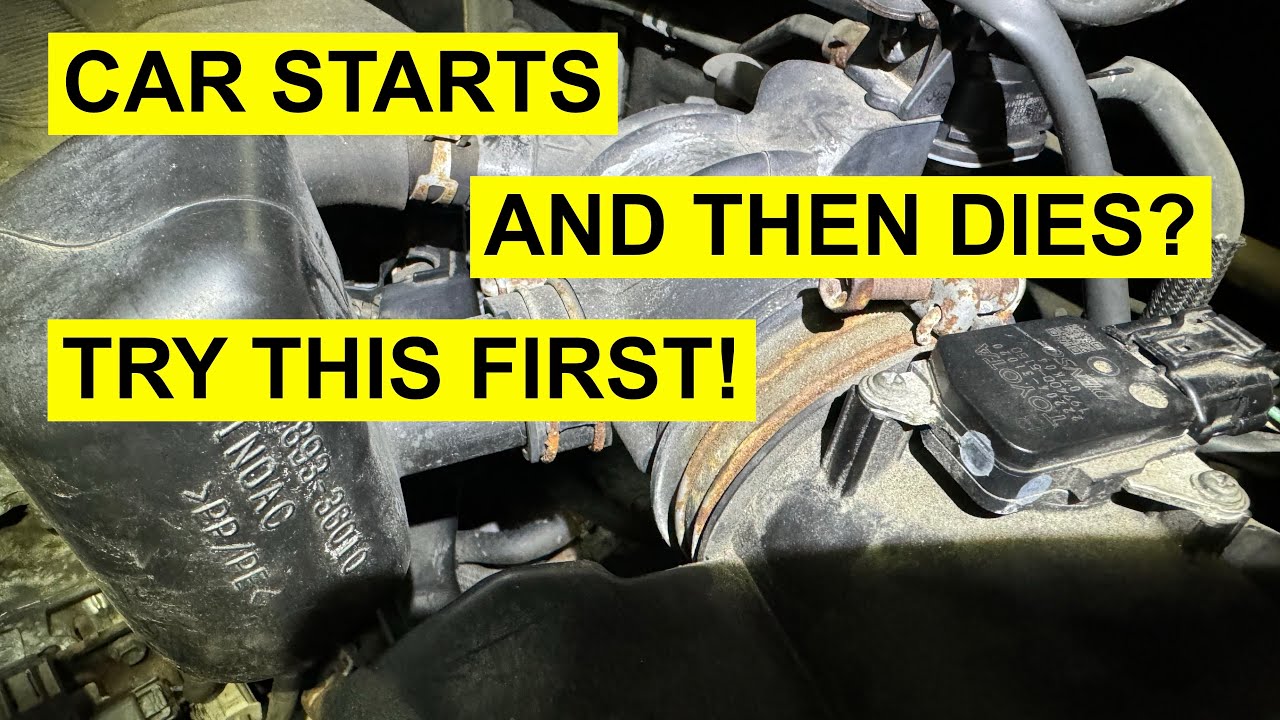Imagine the excitement of turning the key in the ignition, the engine purring to life, only for that joy to be fleeting as the car abruptly dies. It’s a scenario that many drivers dread—your car starts, but then it shuts off, leaving you perplexed and frustrated. This article will delve deep into the possible causes of this automotive enigma, offering insights that will not only enlighten you but may also save you a trip to the mechanic.
The Mysterious Shutdown: What’s Happening?
When your car starts and then shuts off, it can feel like the universe is playing a trick on you. However, this phenomenon usually stems from a handful of common issues. Let’s explore some of the leading culprits:
1. Fuel System Failures
One of the most common reasons for a car to start and then stall is a problem with the fuel system. Here are some specific issues to consider:
- Clogged Fuel Filter: If your fuel filter is blocked, it can restrict the flow of fuel to the engine, causing it to stall.
- Fuel Pump Failure: A failing fuel pump may not deliver enough fuel pressure, leading the engine to shut off.
- Empty Fuel Tank: It sounds simple, but ensure your tank isn’t running on fumes!
2. Ignition System Glitches
The ignition system is essential for keeping your engine running. If there’s a fault here, your car won’t stay alive:
- Bad Spark Plugs: Worn or damaged spark plugs can prevent the engine from firing correctly.
- Ignition Coil Issues: A malfunctioning ignition coil can lead to a weak spark, resulting in a shutdown.
3. Sensor Malfunctions
Modern vehicles rely heavily on sensors to manage engine performance. If a sensor malfunctions, it can send incorrect signals to the engine control unit:
- Mass Airflow Sensor (MAF): If this sensor fails, it could lead the engine to stall due to an incorrect air-fuel mixture.
- Crankshaft or Camshaft Position Sensors: A faulty position sensor can disrupt the ignition timing, causing the engine to shut off.
4. Battery and Electrical Issues
The heart of your car’s electrical system is the battery. If it’s weak or the connections are poor, your engine might not stay running:
- Weak Battery: Insufficient power from the battery can lead to a stall.
- Corroded Connections: Rust on battery terminals can impede electrical flow.
5. Vacuum Leaks
A vacuum leak can create an imbalance in air-fuel mixture, leading to stalling. Pay attention to:
- Hoses and Gaskets: Inspect for cracks or loose connections that may allow air to escape.
6. Engine Overheating
If your engine overheats, it may shut down to prevent damage; Check for:
- Coolant Levels: Low coolant can lead to overheating.
- Thermostat Failure: A faulty thermostat can prevent proper cooling.
What to Do When Your Car Starts and Shuts Off
Now that you know some of the potential causes, here are steps you can take when your car exhibits this behavior:
- Check the Fuel Level: Ensure you have enough gas in the tank.
- Inspect the Battery: Look for signs of corrosion and check for a solid connection.
- Listen for Fuel Pump Noise: When you turn the key to the “on” position, you should hear the fuel pump engage.
- Scan for Error Codes: If you have access to an OBD-II scanner, checking for error codes can provide insight into the issue.
- Consult a Professional: If troubleshooting doesn’t resolve the issue, it might be time to seek help from a mechanic.
Understanding why your car starts and then shuts off is crucial for any car owner. With knowledge comes power—the power to troubleshoot, diagnose, and resolve issues that could save you time and money. While some problems are simple, others may require professional intervention. Regardless, the road to understanding your vehicle is an enlightening journey, one that transforms you from a mere driver into a car-savvy individual. So the next time your engine purrs briefly before going silent, you’ll be ready to investigate with confidence!

